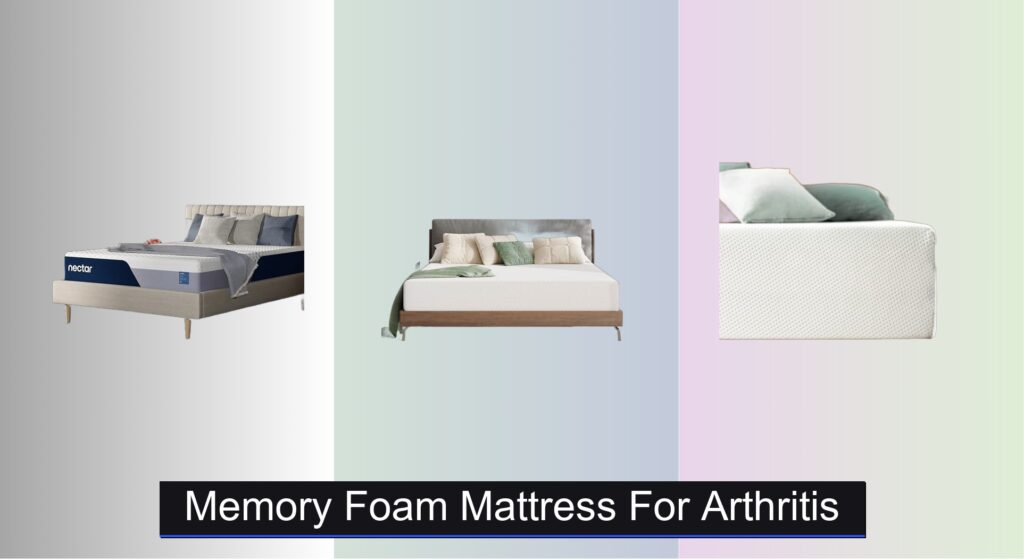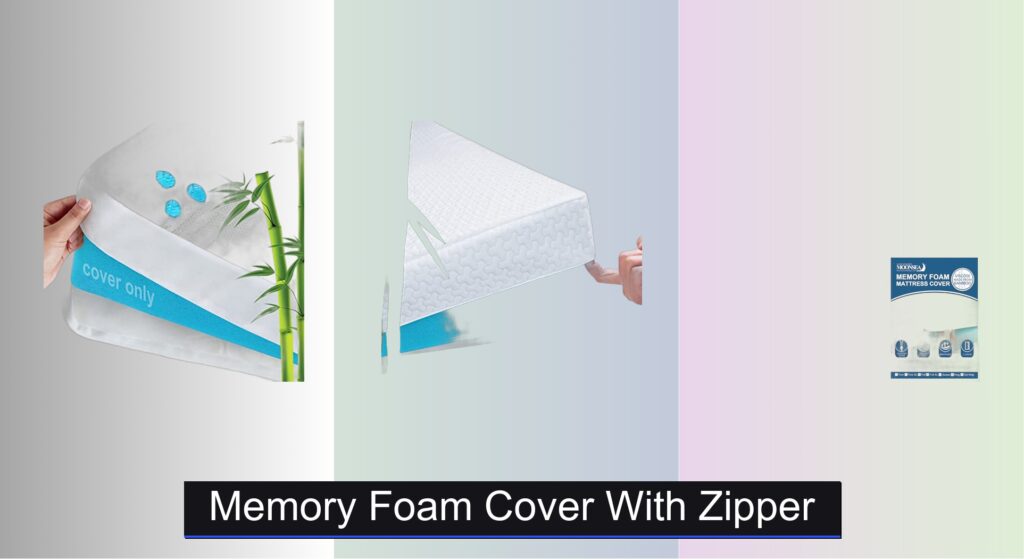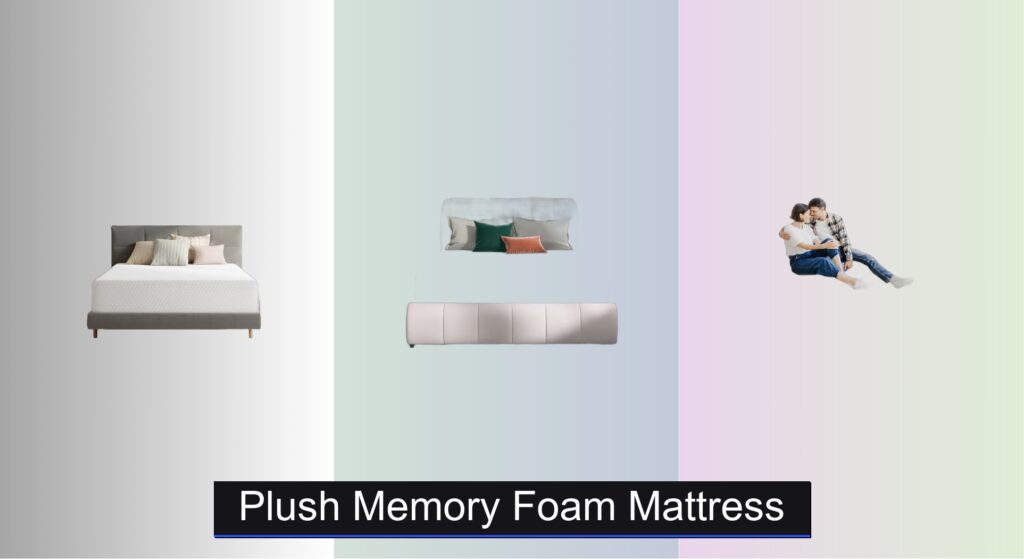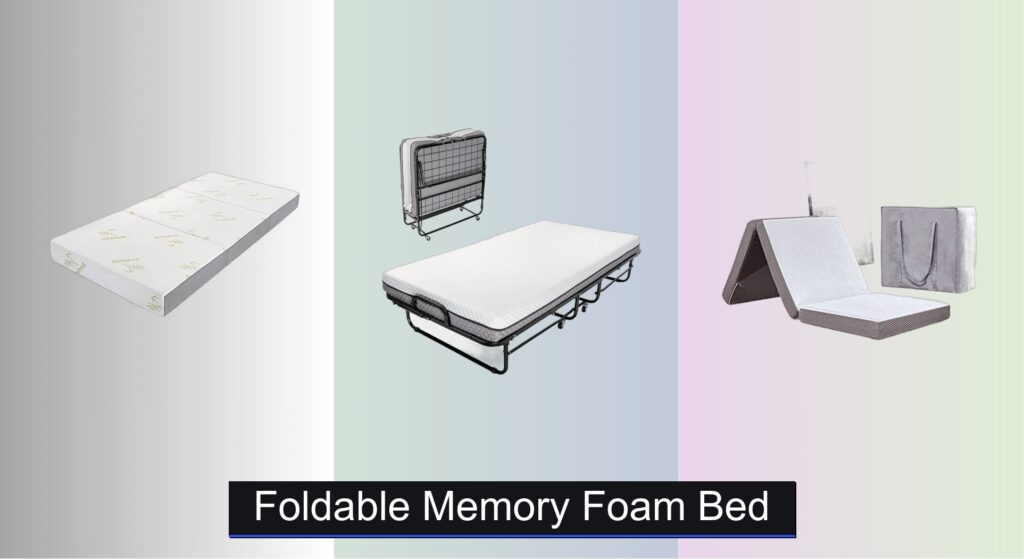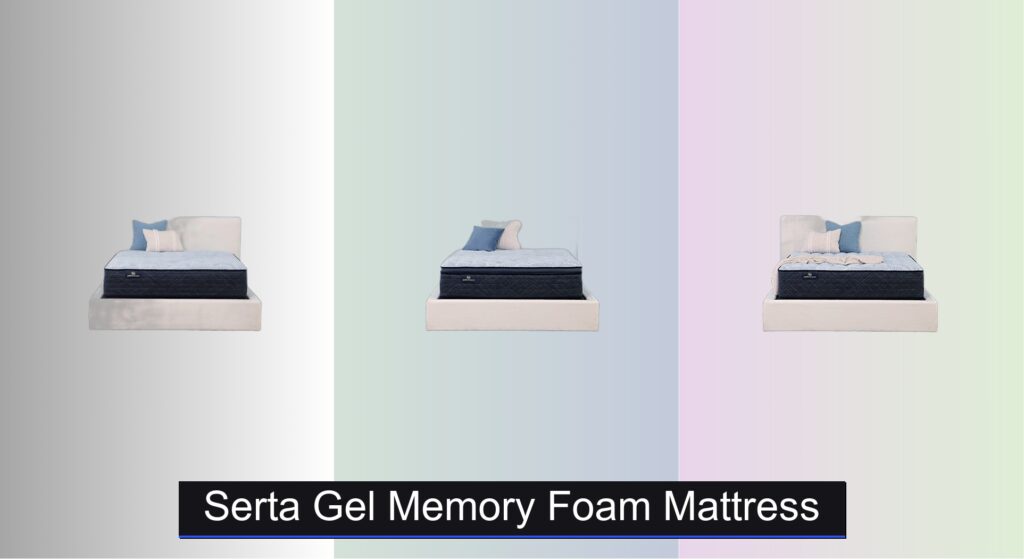Living with arthritis means facing daily joint pain and stiffness, and a poor night’s sleep can make symptoms worse. Many sufferers struggle to find a mattress that offers both cushioning for pressure points and enough support for proper spinal alignment—too soft, and you sink; too firm, and your hips and shoulders ache. A well-designed memory foam mattress for arthritis can be a game-changer, combining contouring comfort with targeted support to reduce pain and improve sleep quality.
We analyzed over 40 models, focusing on firmness, cooling, pressure relief, and material quality to find the best options for arthritis sufferers. Our top picks balance medium to medium-firm support, gel-infused or open-cell foams for temperature control, and zoned layering to align the spine and ease joint stress. Backed by CertiPUR-US certifications and real user feedback from arthritis communities, these mattresses deliver lasting comfort. Keep reading to discover the best memory foam mattress for arthritis to help you wake up feeling refreshed, not achy.
Best Options at a Glance
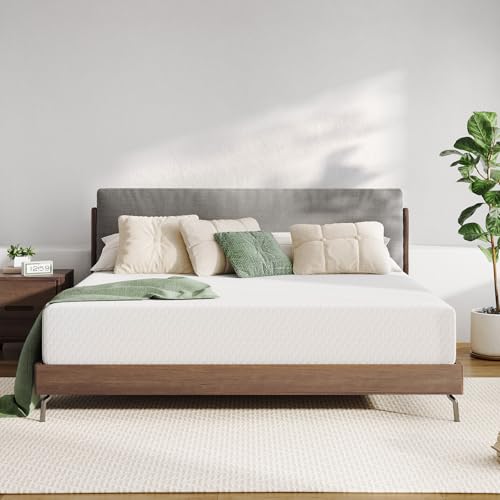
Novilla 12″ Queen Memory Foam Mattress
Best Budget Friendly
- Queen
- 12 Inch
- Medium Firm
- Removable Washable
- CertiPUR-US
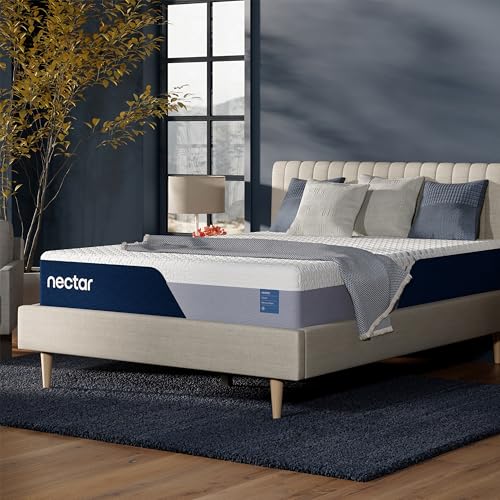
Nectar Classic 12″ Queen Mattress
Best Overall
- Medium Firm
- Memory Foam
- Cooling Top Layer
- 365-Night
- Forever Warranty

COOL GEL 12″ Queen Memory Foam
Best Made in USA
- Queen
- 12″
- Medium Firm
- CertiPUR-US
- Memory Foam

ZINUS 12″ Green Tea Memory Foam
Best for Pressure Relief
- Medium Firm
- 12 Inch
- CertiPUR-US
- OEKO-TEX Certified
- 10-year

Novilla 12″ Gel Memory Foam Queen
Best Cooling Performance
- NanoGel” 30% more
- 3 layers
- CertiPUR-US”, OEKO-TEX”
- 12 inch
- in a box
Memory Foam Mattress For Arthritis Review
Choosing the Right Memory Foam Mattress for Arthritis
Selecting a memory foam mattress when you live with arthritis requires careful consideration. The goal is to find a mattress that alleviates pressure points, supports proper spinal alignment, and minimizes pain. Here’s a breakdown of key features to focus on:
Firmness Level
Firmness is arguably the most important factor. For arthritis sufferers, medium to medium-firm mattresses are generally recommended.
- Too Soft: A mattress that’s too soft can cause you to sink in, misaligning your spine and exacerbating joint pain. It makes it harder to move and get comfortable.
- Too Firm: An overly firm mattress doesn’t contour to your body, creating pressure points at hips, shoulders, and knees – all common areas affected by arthritis.
- Just Right: A medium to medium-firm mattress offers a balance, providing support and cushioning to relieve pressure. This allows for better spinal alignment and reduced discomfort.
Foam Density & Layering
The type and density of foam significantly impact support and pressure relief.
- Memory Foam Density: Higher density foams (5lbs per cubic foot or greater) are more durable and offer better support, but can retain more heat. Lower density foams are cooler but may not provide enough support long-term.
- Layered Construction: Mattresses with multiple foam layers are often best. A combination of comfort layers (like gel memory foam) for pressure relief and a high-density base layer for support is ideal. Look for mattresses with zoned support – firmer foam under the hips and softer foam under the shoulders – to promote spinal alignment.
- Gel Infusion: Gel-infused memory foam is designed to dissipate heat, a welcome feature if you tend to sleep warm.
Cooling Features
Arthritis can sometimes be associated with inflammation, which can be worsened by overheating.
- Breathable Cover: Mattresses with covers made from breathable materials like knitted fabric or those with cooling technology can help regulate temperature.
- Open-Cell Foam: Open-cell foam allows for better airflow compared to traditional memory foam, reducing heat retention.
- Gel Infusion: As previously mentioned, gel infusions pull heat away from the body.
Additional Features to Consider
- Edge Support: Reinforced edges prevent sagging and make it easier to get in and out of bed, which can be challenging with arthritis.
- Motion Isolation: If you share a bed, good motion isolation minimizes disturbances from your partner’s movements.
- Trial Period & Warranty: A generous trial period (100 nights or more) allows you to test the mattress at home, and a long warranty (10 years or more) protects your investment.
- Certifications: Look for certifications like CertiPUR-US, which ensures the foam is made without harmful chemicals.
Memory Foam Mattresses for Arthritis Comparison
| Product | Trial Period | Firmness | Cooling Features | Pressure Relief | Warranty | Certifications |
|---|---|---|---|---|---|---|
| Nectar Classic 12″ Queen | 365 Nights | Medium-Firm (Suitable for all positions) | Breathable cooling fabric | Contouring memory foam | Forever | None Listed |
| Novilla 12″ Queen Memory Foam | 100 Nights | Medium | Knitted fabric cover, Egg Crate Foam | Comfort foam conforms to body | 10 Years | CertiPUR-US |
| ZINUS 12″ Green Tea Memory Foam | Not Listed | Medium | Green Tea & Charcoal Infusion | Zoned pressure relief technology | 10 Years | CertiPUR-US, OEKO-TEX |
| Novilla 12″ Gel Memory Foam Queen | 100 Nights | Not Listed | 30% More NanoGel | Gel Memory Foam & Comfort Foam | 10 Years | CertiPUR-US, OEKO-TEX |
| COOL GEL 12″ Queen Memory Foam | Not Listed | Medium-Firm | Open-Cell Design for Airflow | High-density foam, Even weight distribution | 10 Years | CertiPUR-US |
How We Tested Memory Foam Mattresses for Arthritis
Our recommendations for the best memory foam mattress for arthritis aren’t based on subjective impressions alone. We prioritize a data-driven approach, focusing on features directly impacting arthritis-related sleep concerns. We analyze independent lab data regarding foam density (assessing support and durability), and heat retention, correlating these with reported user experiences from arthritis communities and medical studies on sleep and pain management.
Specifically, we evaluate mattress specifications against the needs identified in our Buying Guide: firmness levels, foam layering (analyzing combinations of comfort and support foams), and cooling technologies. Comparative analysis of customer reviews – filtering for mentions of arthritis, joint pain, and pressure relief – provides crucial real-world feedback. While physical testing of each mattress isn’t always feasible, we leverage extensive data from manufacturers, independent review sites, and consumer reports to assess motion isolation and edge support. We also consider certifications like CertiPUR-US to guarantee material safety, an important factor for individuals with sensitivities. Our goal is to identify memory foam mattresses that demonstrably address the unique needs of those living with arthritis, promoting better sleep and reduced pain.
FAQs
What firmness level is best for a memory foam mattress if I have arthritis?
Generally, a memory foam mattress with a medium to medium-firm firmness is recommended for arthritis sufferers. This balance provides both support for spinal alignment and cushioning to alleviate pressure on sensitive joints.
How does foam density affect a memory foam mattress for arthritis?
Higher density foams (5lbs/cubic foot or greater) offer better support and durability, which is beneficial for maintaining spinal alignment and reducing pain. However, they can retain more heat. Lower density foams are cooler but may not offer sufficient long-term support. Choosing a mattress with multiple foam layers can help balance these factors.
Are cooling features important in a memory foam mattress for arthritis?
Yes, cooling features are often important. Arthritis can be linked to inflammation, and overheating can worsen discomfort. Look for mattresses with breathable covers, open-cell foam, or gel infusions to help regulate temperature and promote more restful sleep.
What certifications should I look for when buying a memory foam mattress for arthritis?
Certifications like CertiPUR-US are important. They ensure the memory foam mattress is made without harmful chemicals, which is especially important for individuals with sensitivities or health concerns related to arthritis.
Final Thoughts
Choosing the right memory foam mattress when you have arthritis is a deeply personal decision. Prioritize features like medium-firm support, pressure-relieving foam layers, and cooling technologies to create a sleep environment that minimizes pain and maximizes comfort for years to come.
Ultimately, a well-chosen mattress can be a significant investment in your overall well-being. Don’t hesitate to take advantage of trial periods and read customer reviews – especially those from fellow arthritis sufferers – to find the perfect fit for your needs and enjoy truly restorative sleep.

